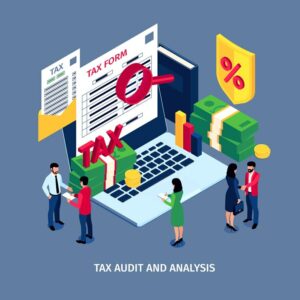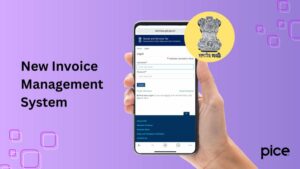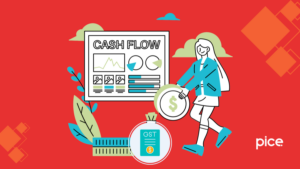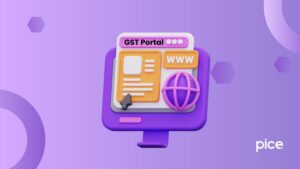GST Rates for Medicines
- 20 Sep 24
- 10 mins
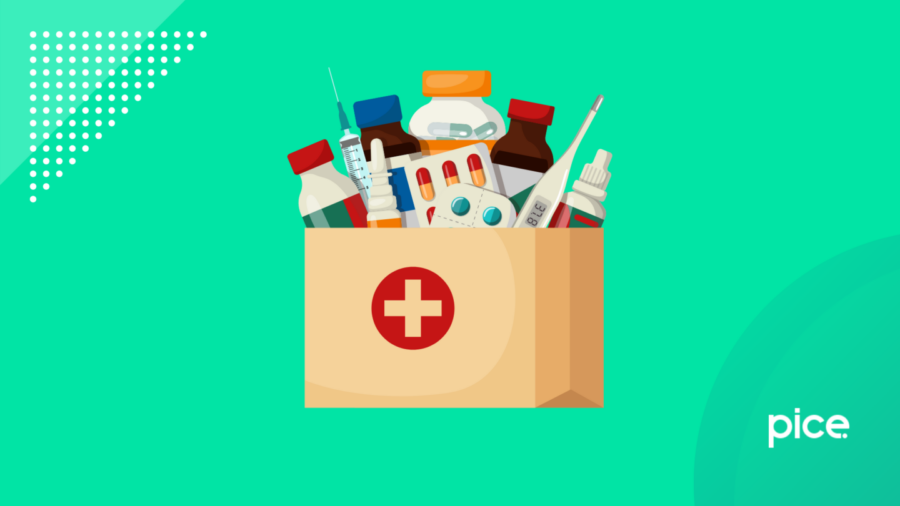
GST Rates for Medicines
Key Takeaways
- GST rates on medicines range from 0% to 18%, depending on the type of product.
- Life-saving drugs and certain medical supplies are either GST-free or taxed at lower rates like 5%.
- The healthcare sector benefits from GST exemptions on most hospital services, except for certain room rentals.
- The Indian Pharmaceutical Industry plays a crucial role in both the domestic economy and international markets.
- Understanding the applicable GST rates and HSN codes is essential for compliance and financial planning in the pharmaceutical sector.
The Goods and Services Tax (GST) has revolutionised the taxation system in India, impacting various sectors, including healthcare. The GST rate for medicines is a critical aspect of this taxation reform.
GST has brought about significant changes in the tax system in India, affecting a wide range of sectors, including healthcare. One crucial aspect of this taxation reform is the GST rate for hospital services, which has had a notable impact on the healthcare industry.
In this blog, we will discuss the applicable GST rates on medical services, their effects, the various HSN codes and other associated details.
GST on Healthcare Services
According to the 47th GST Council Meeting, hospitals and healthcare services are exempted from Goods and Services Tax—for instance, doctors' services in Assisted Reproductive Technology (ART) or In Vitro Fertilisation.
Two amendments to the exemption are:
- Health care services that are included in the transportation of a patient by availing ambulance services.
- The services provided by authorised medical practitioners or paramedics in clinics or hospitals are exempted under Goods and Services Tax. However, these are not applicable in some conditions. Like, services in room provision. However, it excludes critical care units (CCU), neonatal intensive care units (NICU) and intensive care units (ICU) of any clinical establishment that amount to more than ₹5,000 per day. Additionally, one cannot claim an Input Tax Credit (ITC) on the services mentioned above.
GST Rates for Medicines
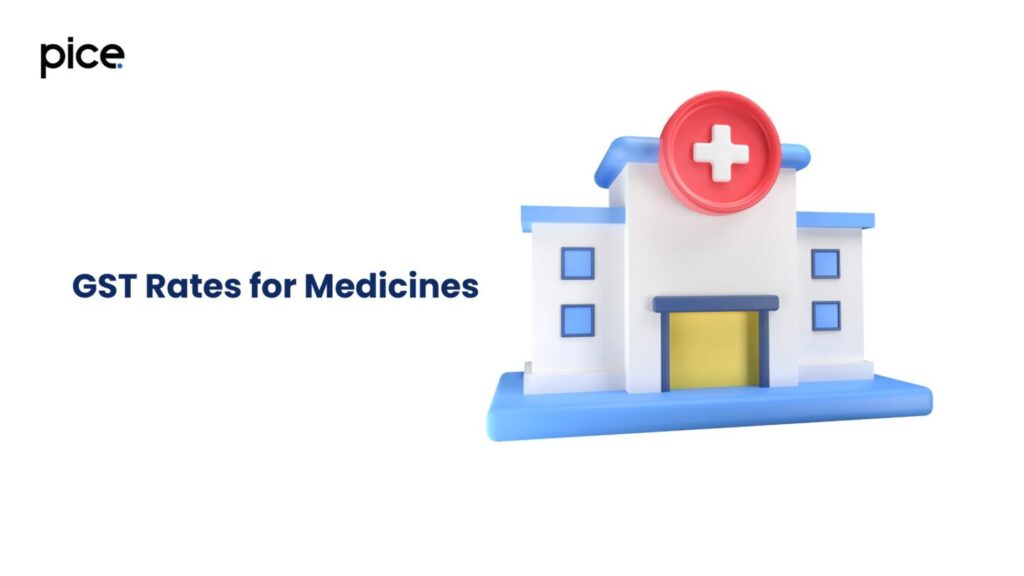
The GST rates applicable on medicines range between 0% to 18%. The lowest tax rate is levied on pharmaceutical products like life-saving drugs. However, the highest tax rate is on hygienic articles.
The different rates of GST have been explained in detail below.
Zero GST Rate on Medicines and Medical Supplies
Following are the medical goods where 0% or NIL GST rate is applicable:
- All types of contraceptives
- Tampons or sanitary napkins
- Human blood and its by-products that are used in medicines
- Desferrioxamine injection or Cyclosporin medicaments (which includes veterinary medicaments)
5% GST Rate on Medicines and Medical Supplies
Here is the list of medical supplies where a 5% GST rate is applicable:
- Insulin
- Desferrioxamine injection or deferiprone
- Artificial kidneys
- Artificial limbs
- Orthopaedic instruments like surgical belts, crutches, artificial body parts, fracture appliances, etc.
- Coronary stent systems that are used in cases of cardiac catheters
- Diagnostic test kids of COVID-19
- Micro barrier or artificial kidney or sterilised dialyzer (disposable)
- Systems Medicaments that are used in biochemical but do not have a brand name
💡If you want to pay your GST with Credit Card, then download Pice Business Payment App. Pice is the one stop app for all paying all your business expenses.
12% GST Rate on Medicines and Medical Supplies
Following is a list of medicines or medical supplies where a 12% GST rate is applicable:
- Modified immunological products and blood fractions
- Animal blood that is used for diagnostic, therapeutic purposes or prophylactic purposes
- Medicaments, which consist of mixed or unmixed products in packaging for retailing. For example, homoeopathic, ayurvedic, siddha or unani systems.
- Waste pharmaceuticals
- Surgical rubber gloves, bandages, adhesive plasters, or those used for medical examination
- Gas masks and breathing appliances
- X-ray machines, surgical, dental yarns and veterinary instruments
- Contact lenses
- Oral rehydration salts
- Photographic film and X-ray plates for medical purposes
18% GST Rate on Medicines and Medical Supplies
Here is a list of medicines and medical supplies where a GST rate of 18% is applicable:
- Razor blades
- Surface active products (organic)
- Infrared barometers, thermometers, psychrometers, pyrometers and hydrometers
- Pharmaceutical products such as hot water bottles, teats, etc.
- Walking frames, operating tables, examination tables, dentist’s chairs, etc.
- Dental floss and dental hygiene that are available in packages during retail sale
- Transdermal or oral application products, such as nicotine gums
28% GST Rate on Medicines and Medical Supplies
28% GST Rate is not levied on any medicines or pharmaceutical products.
Calculating GST on Medicines
Follow the steps below to calculate Goods and Services Tax on medicines:
Step 1: Identify the GST rate on the particular medicine as it varies. As discussed above, essential medicines like life-saving drugs usually have a GST rate of 5% whereas others may be taxed in the range of 12% to 18%.
Step 2: Determine the base price or price of the medicine that is fixed by the manufacturer or retailer.
Step 3: Use the following formula to calculate the amount of GST:
GST Amount= Base price * (GST rate/100)
Example: Considering the base price of a medicine to be ₹100 and the rate of GST to be 10%. In this case, the GST will amount to ₹10, using the given formula.
Step 4: Now to calculate the final price, add the amount of GST to the base price of the product.
Considering the example given in step 3, the base price would amount to ₹110.
GST on Hospitalisation
In 2017, the Authority of Advance Ruling (ARR) in Kerala passed a rule which said that the supply of medicines, stents, implants, surgical instruments and similar products fall under composite supply and be exempted from the levy of GST. The Tamil Nadu Authority for Advance Ruling passed a similar rule.
The healthcare services that a hospital provides are exempted from GST, in most cases. However, a rate of 5% is applicable if the cost per day exceeds ₹5,000. Take a look at the table below to have a better understanding of the same.
| Hospital Room Rent | Applicable GST Rate | Services Accounting Codes |
| Less than ₹5,000 | 0% | 9993 |
| More than ₹5,000 (other than ICU/CCU/ICCU/NICU) | 5% (excluding input tax credit) | 9993 |
| Critical Care Units (CCU)/ Neonatal Intensive Care Units (NICU)/ Intensive Care Units (ICU) Intensive Cardiac Care Units (ICCU) | 0% | 9993 |
Effects of GST on Medicines
The average prices of medicines and medical supplies remain unchanged in both pre-GST and post-GST eras. Some medicines had exemptions from GST and there were also availability of certain area-based excise duty exemptions.
The table below compares prices of medicines between pre and post-GST regimes:
| Particulars | Pre-GST (Rs) | Post GST (Rs) |
| Manufacturing cost of one packet of XYZ tablets (A) | 100 | 100 |
| Excise duty at 6% on 65% of MRP (B) [((A)*65%)/106]*6% | 3.9 | — |
| VAT at 4% (On A+B) | 4.16 | — |
| GST at 12% | — | 5/12 |
| Final sale price | 108.06 | 105/112 |
GST on Pharmaceutical Imports
Customs duty and IGST (Integrated Goods and Services Tax) apply to pharmaceutical imports. Here is the division of taxes:
- Basic customs duty – 10% is applicable on assessable value for customs duty
- Social welfare surcharge – 10% on Basic Customs Duty
- IGST – 5%/12%/18% on the value after the addition of the assessable value for customs duty the basic customs duty, and social welfare surcharge.
GST on Returned or Expired Medicines
The impact of GST on returned or expired medicines are:
- Return of Expired Medicines (Fresh supply)
Three scenarios can arise in this case:
- Return of goods by a composition dealer
- Return of drugs by a person who is registered under GST
- Return of goods by a person who is not registered under GST
- Destruction of Time-Expired Medicine
If the manufacturer has destroyed the goods that the wholesaler or retailer had returned, then he is required to reverse the Input Tax Credit (ITC). The ITC that needs to be reversed is the availed ITC and not the amount that applies to such goods.
Return of Expired Goods (Credit note issuance)
As per Section 34 (1) of the CGST Act, the supplier is eligible to issue a credit note if the recipient has returned the time-expired goods. The retailer or the wholesaler can issue a delivery challan. Additionally, the ITC that applies to these goods is required to be reversed.
Two scenarios may arise in this case:
- Issuance of credit note within the given time limit
- Adjustment of tax liability by the supplier provided
- No availment of ITC by the person returning these goods
- Reversal of ITC by the person upon availment
- Issuance of Credit Note has not been done within the time limit
In this case, the manufacturer is not eligible for tax liability adjustment.
Significance of the Indian Pharmaceutical Industry to India
The Indian Pharmaceutical Industry is beneficial to the country. Let us discuss this in detail.
- Boost to the Economy: The Pharmaceutical Industry of India has provided jobs to millions and has huge contributions to foreign exchange earnings. It aims to expand its market scope and develop new drugs, biologics and greater innovations by the year 2030.
- Establishment in Foreign Markets: The Pharmaceutical Industry of India contributes 40% to 70% of generics that are dispensed in the United States and 25% of drugs that the United Kingdom consumes. Additionally, India exports two-thirds of antiretroviral drugs in global markets.
- Growth and Development: The introduction of the Patents (Amendment) Act 2005 led to the further introduction of product patents in India. Since then, foreign companies have begun their venture in the country, promoting healthy competition.
HSN Code for Pharmaceuticals
Harmonised System of Nomenclature (HSN) is a 6-digit code that has global acceptance and ranks over 5,000 products. Here is a list of HSN codes for certain pharmaceutical products:
| HSN Code | Pharmaceuticals |
| 300610 | Sterile tissue adhesives for surgical wound closure, sterile surgical catgut, laminaria tents, dental hemostatics, etc. |
| 30062000 | Blood grouping reagents |
| 30064000 | Cement for bone reconstruction, dental fillings, etc. |
| 30065000 | First-Aid and diagnostic test kits |
| 30066010 | Contraceptives and spermicides which are based on hormones |
| 30067000 | Veterinary that is used as lubricants for operations, gel preparations that are used in humans, etc. |
The Bottom Line
The effect of GST on medicines for both pharmaceutical companies and consumers is diverse. For consumers, having a fair understanding of the different GST rates for medicines will help them make better decisions and financial planning. Abiding by proper business compliances, businesses on the other hand, will be able to avail of the benefits of Input Tax Credit and avoid penalties effectively.
 By
By 










